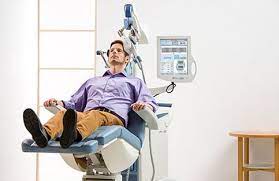If you have been diagnosed with OCD, you may be wondering what evidence-based treatments are. In this blog post, we will discuss the different types of OCD Evidence Based treatments that have been shown to be effective in treating this disorder. We will also talk about which treatments may be best suited for you, based on your individual needs.
Contents
What Is OCD?
OCD, or Obsessive Compulsive Disorder, is a mental health condition characterized by intrusive thoughts, images, or impulses (obsessions) and repetitive behaviors (compulsions). OCD affects approximately 1-2% of adults in the United States. These obsessions and compulsions can interfere with a person’s daily life. The most common signs of OCD involve:
• Excessive cleaning or hand-washing and obsessively checking (e.g., door locks, stove knobs).
• A strong urge of Counting and ordering items. Repeating words or phrases or certain activities.
• Having certain thoughts or beliefs that are difficult to shake off.
Is OCD A Lifelong Disorder?
OCD can be a lifelong disorder, but the good news is that it is highly treatable. When treated correctly with medication and talk therapy, many people can live a life free of symptoms. It depends on the signs of obsessions and compulsions and their severity.
Evidence Based Treatment For OCD

Here are some of the most commonly recommended evidence-based treatments for OCD:
Cognitive Behavioral Therapy (CBT)
This type of therapy focuses on identifying and changing patterns of thought and behavior that lead to obsessive-compulsive behaviors. It teaches cognitive restructuring techniques to help people recognize and challenge unhelpful thoughts. This also works as a relaxation technique to reduce anxiety. It is the primary evidence based treatment for OCD.
Exposure and Response Prevention (ERP)
This type of therapy involves exposing a person to the objects or situations that trigger their obsessions. It generally prevents them from engaging in compulsive behavior. This helps the person learn to tolerate fear and anxiety without resorting to their compulsions. The therapist will then assist the patient in learning how to cope with their feelings when exposed to those triggers.
In Imaginal exposure, the patient is asked to imagine the feared situation or object in vivid detail. This helps to desensitize them and can eventually help them manage their discomfort when exposed to it in reality. The Vivo exposure involves gradually exposing the patient to their feared object or situation in real life, such as going for a walk outside if they have agoraphobia. This helps them learn to manage their fear and anxiety without needing to resort to compulsive behaviors.
Acceptance and Commitment Therapy (ACT)
This type of therapy focuses on accepting one’s thoughts and sensations without judgment and also embracing life values. Another evidence based treatment for OCD, it helps people become more mindful and accepting of their intrusive thoughts and feelings without letting them interfere with their goals or values.
Medication
Medications are also an evidence based and effective treatment for OCD. These medications work by increasing the levels of serotonin in the brain, which helps to reduce anxiety and obsessive thoughts and behaviors.
There are several medications available that can help reduce OCD symptoms, including selective serotonin reuptake inhibitors (SSRIs), tricyclic antidepressants, antipsychotics, olanzapine, risperidone, and benzodiazepines. It’s important to talk to your doctor about which medication may be right for you.
Mindfulness Activity
Mindfulness is another evidence based treatment for OCD. It helps to focus on what’s happening in the present moment, instead of worrying about the future or ruminating on the past. This can help reduce anxiety and intrusive thoughts related to OCD.
Some mindfulness activities that can help focus your attention on the here and now include deep breathing exercises, body scans, progressive muscle relaxation, and guided imagery. Meditation is also a great tool to practice mindfulness and increase awareness of one’s thoughts, feelings, and physical sensations.
Support Group
Having a strong support system is essential for someone dealing with OCD. Joining an OCD-specific or mental health support group can help you connect with others people. It includes people with the similar condition so that they can understand what you’re going through and offer helpful advice and guidance. By joining support groups and talking to other people who are dealing with similar issues, you can gain insight into your own experiences and learn how to better cope with OCD.
Transcranial Magnetic Stimulation (TMS)

Transcranial Magnetic Stimulation (TMS) is a non-invasive, FDA-approved therapy that uses magnetic pulses to stimulate areas of the brain involved in OCD. This therapy is done in a series of outpatient sessions and has been shown to be effective in reducing symptoms.
Deep Brain Stimulation (DBS)
Deep brain stimulation (DBS) is an invasive procedure that involves surgically implanting electrodes into certain areas of the brain. These electrodes send electrical signals to the areas of the brain involved in OCD. It is useful in reducing its symptoms. This therapy is usually reserved for people who are not responding to more conservative treatments.
These treatments may not work immediately, but they will help reduce symptoms over time. Taking small steps toward recovery can make a big difference and help you live a healthier life.
What Is The Latest Treatment For OCD?
Troriluzole Emotional Regulation Therapy (T-ERT) is the newest form of treatment for OCD. This therapy combines cognitive behavioral techniques with medication to target feelings of anxiety and obsessions. T-ERT has been shown to be effective in reducing symptoms, even in individuals who have had difficulties responding to more traditional treatments.
Conclusion
OCD is a serious mental health condition that can have a significant impact on someone’s life. Fortunately, there are several evidence based treatments for OCD. All of them are proven to be effective in managing its symptoms. These include cognitive behavioral therapy, exposure and response prevention, acceptance and commitment therapy, medication, transcranial magnetic stimulation, and deep brain stimulation. It’s important to talk to your doctor about which treatment option may be right for you. With the right treatment, it is possible to live a life free of obsessions and compulsions.
Take care, and don’t forget that you are not alone! OCD is a mental health disorder characterized by obsessions and compulsions. If you have any queries regarding OCD treatment, ERP therapy experienced therapists at OCDMantra can help: Book a trial OCD therapy session


